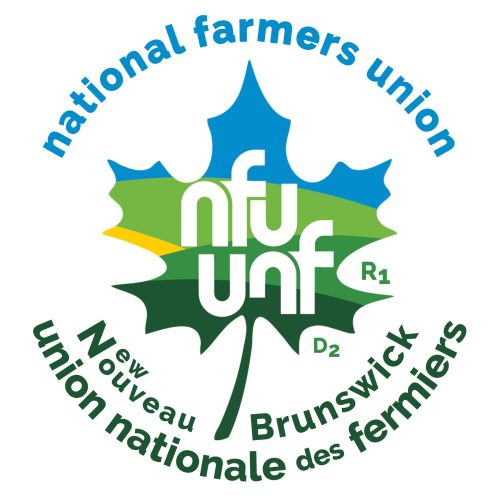Press release – Fredericton, October 31, 2016
On Monday, October 24, the Final Report of the Select Committee on Climate Change was released. The all-party committee made strong recommendations to government including adopting the high targets suggested by the Conservation Council of NB of 40% below 1990 levels by 2030 and 80% below 2001 levels by 2050, as well as recognizing the importance of current research in all sectors, especially agriculture, so that farmers have the knowledge and funding supports to be proactively adopting more resilient practices as soon as possible.
NFU-NB President Ted Wiggans, and executive director, Amanda Wildeman presented to the committee on September first. “It is clear from the report that the Committee really heard the ideas of New Brunswickers. Now it will be up to government to take it and move forward in a meaningful way. As we mentioned multiple times during our presentation we need quick action, as 2030 is only 13 years away,” says Amanda Wildeman.
A made in New Brunswick carbon tax is the response that the committee has suggested as a means to fund climate change adaptation measures. The NFU-NB cautioned that farmers are historically ‘price-takers’, and will be very vulnerable to seeing their profit margins squeezed upstream on inputs, as well as downstream on final prices. There needs to be measures in place to ensure that farm businesses remain viable – we all need to eat. The NFU recommended not only that revenues from a carbon tax be put into a special Green Fund, but more specifically that any carbon taxes generated from the agriculture sector be put directly back into on-farm adaptations and public research that will directly benefit farmers.
“Farmers are on the front lines of climate change and have already been directly impacted by changing climate patterns. Some are ok – like a month of extra frost-free growing season in some areas in the last few decades, but others like heavy rainfall, increased hail, and longer periods of drought are all going to require increased research to ensure that farmers has access to the best, locally adapted seed varieties, and healthy soils and buffer zones around their farms and fields so that crops can better withstand turbulent weather,” recommends president Ted Wiggans.
For farmers, their daily work and their livelihoods are affected by unpredictable weather patterns, rising temperatures and new pests. Farmers are also some of the most adaptable and resilient folks around. Farmers are very vulnerable to the effects of climate change, contribute to climate change and are also well positioned to lead some of the solutions.
We all need to eat, and given that most of the food consumed in NB is imported, we can make a huge impact on transportation emissions by growing more of our food in province.
The NFU-NB urges the NB government to move forward with recommendations outlined in the Select Committee’s report as quickly as possible and to ensure that farmers are included in the consultations at every step of the way.
– 30 –
The National Farmers Union in New Brunswick is one of two accredited general farm organizations in the province.
Read the NFU-NB’s submission to the Select Committee on Climate Change here.
Contact:
Ted Wiggans, NFU-NB president (506) 366-3410
Amanda Wildeman, NFU-NB executive director (506) 260-0087




